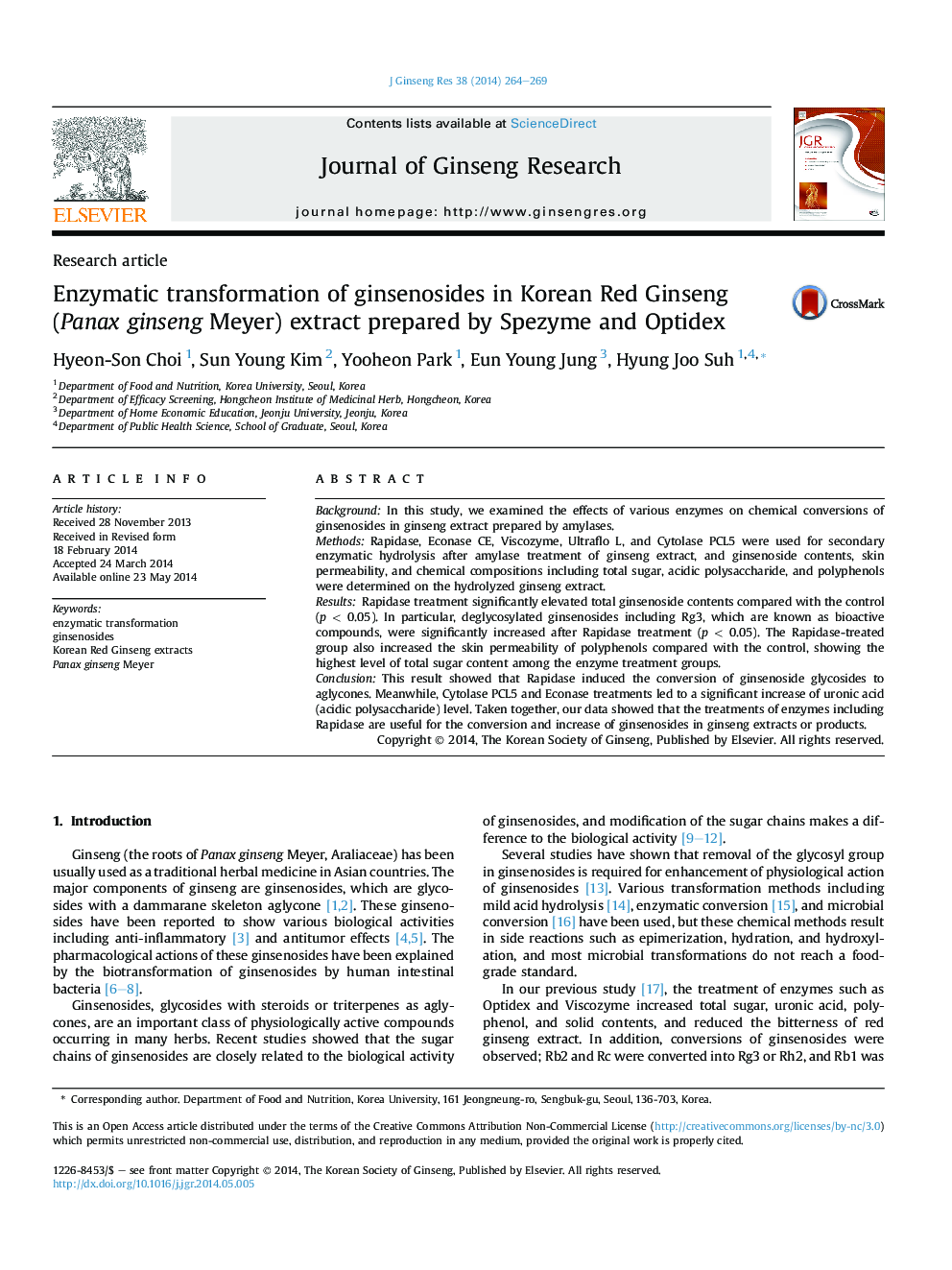| Article ID | Journal | Published Year | Pages | File Type |
|---|---|---|---|---|
| 3099356 | Journal of Ginseng Research | 2014 | 6 Pages |
BackgroundIn this study, we examined the effects of various enzymes on chemical conversions of ginsenosides in ginseng extract prepared by amylases.MethodsRapidase, Econase CE, Viscozyme, Ultraflo L, and Cytolase PCL5 were used for secondary enzymatic hydrolysis after amylase treatment of ginseng extract, and ginsenoside contents, skin permeability, and chemical compositions including total sugar, acidic polysaccharide, and polyphenols were determined on the hydrolyzed ginseng extract.ResultsRapidase treatment significantly elevated total ginsenoside contents compared with the control (p < 0.05). In particular, deglycosylated ginsenosides including Rg3, which are known as bioactive compounds, were significantly increased after Rapidase treatment (p < 0.05). The Rapidase-treated group also increased the skin permeability of polyphenols compared with the control, showing the highest level of total sugar content among the enzyme treatment groups.ConclusionThis result showed that Rapidase induced the conversion of ginsenoside glycosides to aglycones. Meanwhile, Cytolase PCL5 and Econase treatments led to a significant increase of uronic acid (acidic polysaccharide) level. Taken together, our data showed that the treatments of enzymes including Rapidase are useful for the conversion and increase of ginsenosides in ginseng extracts or products.
